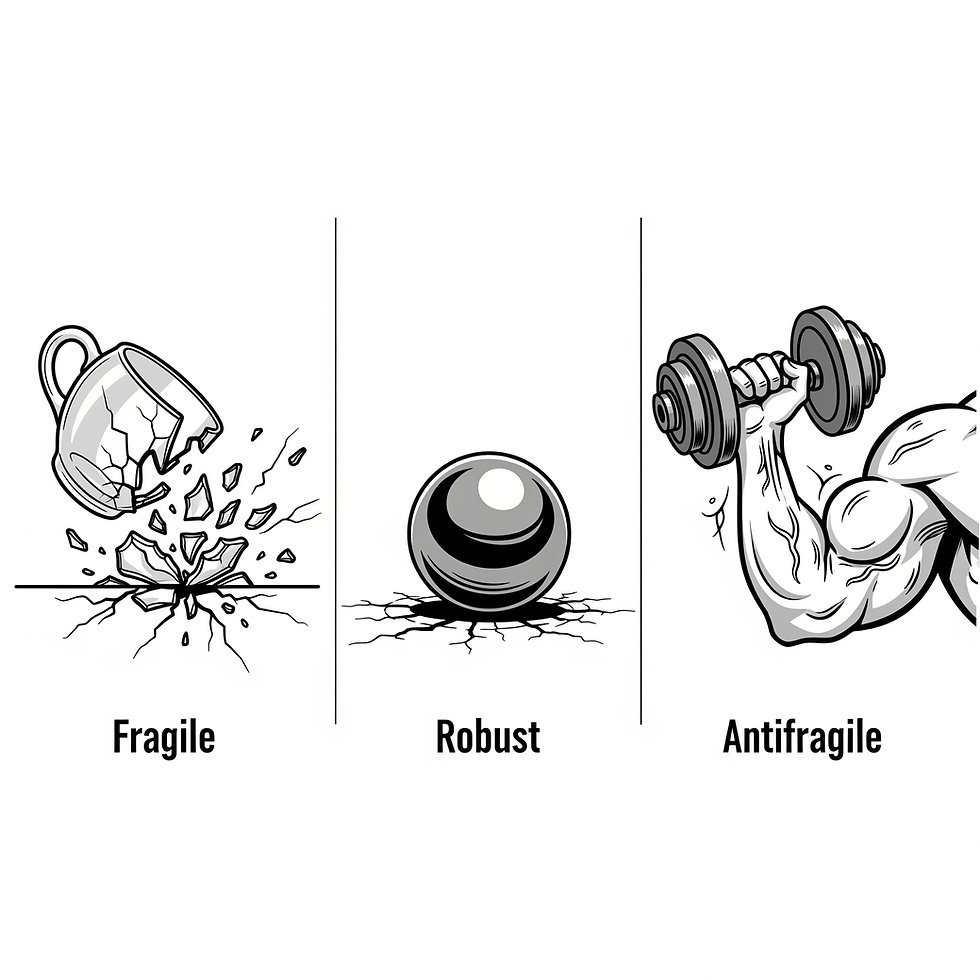Antifragility. Why Resilience is Not Good Enough
- Stefan Sager

- Aug 16
- 2 min read
Updated: Oct 4
Antifragility is the quality of systems that gain strength, capability, and resilience as a result of stressors, shocks, or failures.
A single, highly optimised restaurant chain opens. It is efficient but fragile: if tastes change or a supply chain breaks, it fails.
In contrast, a neighbourhood with 20 different small, independent restaurants is antifragile. Some restaurants will fail (small stressors), but new ones will open, learning from the failures.
The dining scene as a whole is getting stronger, more diverse, and more resilient due to individual failures, not in spite of them.

What's the difference between fragile, robust, and antifragile?
Antifragility is the opposite of fragility.
A fragile teacup breaks when dropped.
A robust steel ball is undamaged when dropped.
An antifragile system would somehow get stronger after being dropped.
The human immune system is antifragile: exposure to a pathogen (a stressor) makes it build antibodies and become stronger. Weightlifting is an antifragile process: stressing the muscles causes them to rebuild stronger than before.
This concept is crucial for dealing with events that cannot be predicted, such as a Black Swan.
How can I build an antifragile career?
In life and business, an antifragile approach involves creating systems with optionality, redundancy, and the ability to learn and adapt from small failures.
Instead of trying to build a career plan that is "perfect" and fragile to change, build a diverse skillset. A layoff in one industry (a shock) is less threatening if your skills are applicable elsewhere, making your career path antifragile.
We appreciate you subscribing (below) it allows us to:
Publish new Mental Models every week.
Remain 100% independent and ad-free.
Grow our library of resources for the community.
All resources can be found here



Comments